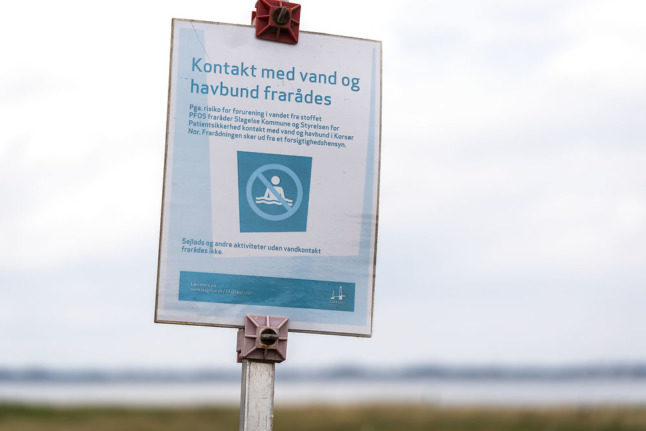The opposition Liberal and party and the Socialist People’s Party (SF), a left wing ally to the government, want the government to introduce national limits for the amount of PFOS in wastewater, newspaper Jyllands-Posten reports.
Authorities have already reduced limits for PFOS levels in drinking water and soil after the pollutant was discovered in a number of locations.
But no limit for wastewater currently exists. A limit for wastewater is considered necessary because wastewater can pass PFOS pollution to natural wet areas like the Wadden Sea off Denmark’s southwest coast.
Municipalities can set their own limits but at least one local authority said locally-set values could create uneven standards.
“If we locally set a limit based on our technical knowledge, we risk another municipality setting a higher or lower limit based on their own local knowledge,” said Jan Michael Jørgensen, a departmental leader with the Slagelse municipality.
Perfluorooctanesulfonic acid (PFOS) is a human-made chemical fluorosurfactant which was used in production of products up until the 1990s but is now considered a pollutant.
The substance is very difficult to break down or dissolve, and has been used in a range of products including rainproof clothing and pizza boxes due to these properties.
However, the same properties make it difficult for humans and animals to break down if they ingest it. It can thereby by build up in the body, which can have long term health consequences.
Earlier this year, reports emerged that residents in Korsør had eaten meat from cattle that had been polluted with PFOS. That resulted in the pollution being passed on to 118 residents.
READ ALSO:
- Denmark appoints expert advisors after toxic chemical pollution
- PFOS: What you need to know about substance and pollution in Denmark
“It’s important we have a response across the whole country… it’s something we need a tough response to,” SF environment spokesperson Carl Valentin told news wire Ritzau.
The Liberal spokesperson for the environment, Jacob Jensen, called for the environment ministry to address the problem.
“We can’t have a situation whereby with a dangerous substance like PFOS, one municipality can set a limit and that 500 metres downstream in another municipality there’s another limit,” Jensen said.



 Please whitelist us to continue reading.
Please whitelist us to continue reading.
Member comments